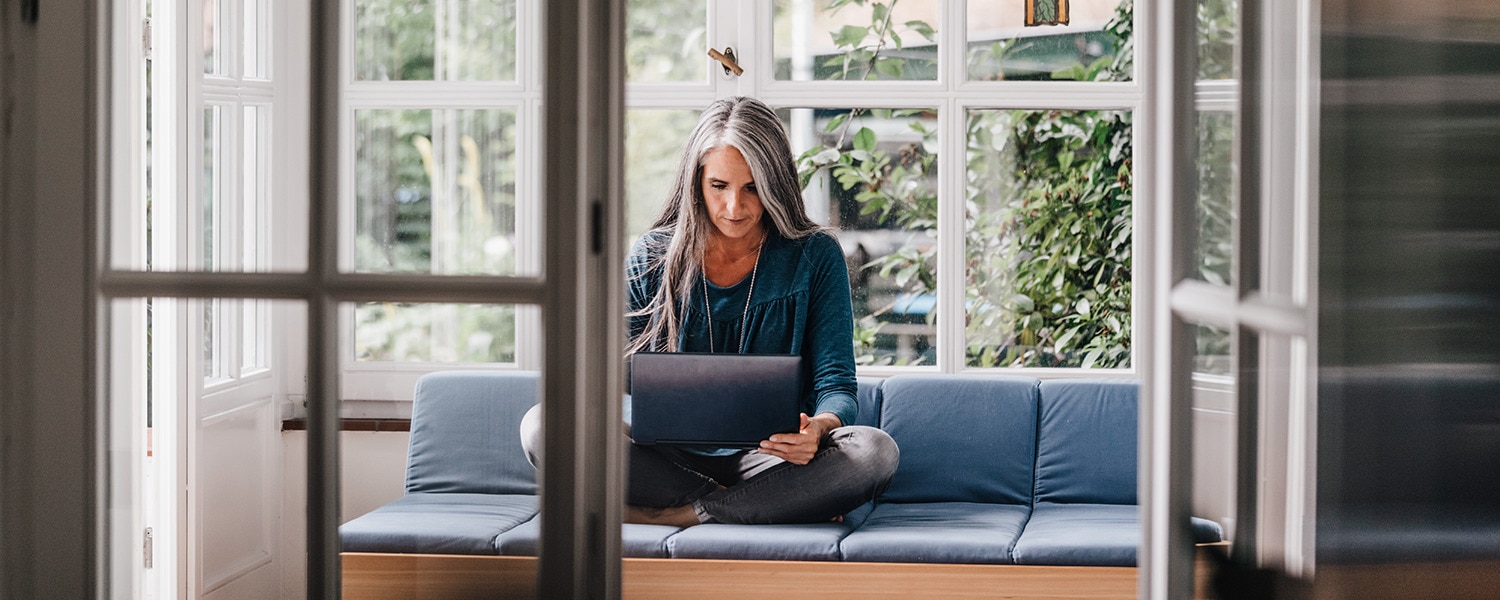
What is Menopause?

Menopause is a subject that’s weirdly shrouded in mystery – but just like menstruation, it’s a totally natural process.
And while it can be tricky to navigate if you aren’t sure what to look out for, knowing what it entails means you can take it in your stride.
Menopause is when you stop ovulating due to a fall in the levels of estrogen and progesterone in your body. But it’s also a collection of symptoms and changes that a woman goes through just before or just after she stops menstruating for good.
The first sign of the menopause is usually a change in the pattern of your periods. You may experience substantial period bleeding, where your flow becomes uncharacteristically heavy. Or your periods may become much lighter and more intermittent. You may have a period every two or three weeks, or not have one for months at a time. All this is normal.
Menopause is a gradual process that tends to happen in stages. The age you are at its onset is hereditary. It can begin as early as 40 or as late as 60, with the average age being 51. Symptoms start a few months or even years before your periods stop – known as the ‘perimenopause’ – and typically continue for four years afterwards.
When you first notice changes that may be menopausal, it’s important to talk to your doctor, have a blood test for confirmation and get advice. The most typical menopausal symptoms include hot flushes, night sweats, irritability, sleep disturbances and vaginal dryness. But there are lots of other signs, too, such as dizziness, bloating, weight gain, mood swings, headaches and loss of libido.
Some women get no symptoms, but most get at least one or more. If this is you, you needn’t suffer in silence. Many women find regular exercise to be beneficial in reducing symptoms, while acupuncture and hypnotherapy have both been found to be effective in tackling hot flushes and insomnia. In the past HRT or hormone replacement therapy [1] was the standard treatment, but recent research has linked this to breast cancer, blood clots and strokes, so it’s wise to talk things through with your doctor.
Menopause can be an emotionally frustrating time but it can also be a relief to no longer havto deal with the hassle of periods and PMS. Some women even find they feel more confident and at ease in their own skin when they are postmenopausal.
As bladder control can be affected by the menopause, it’s a good idea to have some TENA adult diapers in your bag in case this becomes an issue. And don’t forget to keep some liners (such as Libresse® Slim Liners) handy, too, in case your periods become unpredictable.
Did you know?
Medical disclaimer
The medical information in this article is provided as an information resource only, and is not to be used or relied on for any diagnostic or treatment purposes. Please consult your doctor for guidance about a specific medical condition.

